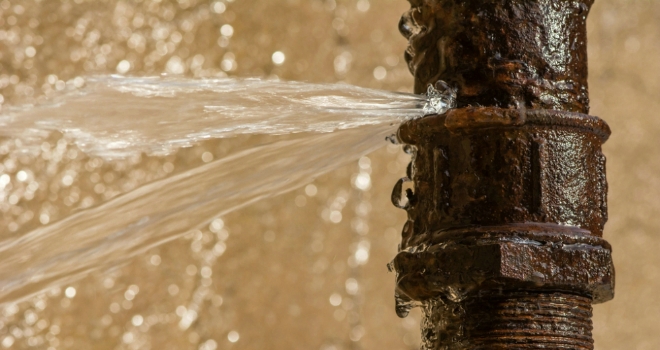5 Recurring Reasons for Water Leaks
5 Recurring Reasons for Water Leaks
Blog Article
They are making a number of great points on the subject of How to Find and Prevent Water Leaks in Your Home as a whole in the article beneath.

"Be cautious of little expenditures. A little leak will sink an excellent ship." - Benjamin Franklin.
He could not have actually been more best because water leaks in our houses result in a waste of resources, increasing our water expenses. Although this rise may appear minimal at first, it can result in substantial expenditures that can break your financial institution. Apart from a rise in bills, water leaks likewise trigger undesirable organic growth, structural damages, as well as also electric dangers.
Finding out if you have a water leakage isn't always very easy because of being unable to see most of the pipework in your house. If you have had a rise in your water expenses recently, discovered water discolorations on wall surfaces as well as ceilings, smelt poor odor, and so on. You could wish to consider asking for plumbing services to get it had a look at.
There are a number of root causes of water leakages, and we have actually put together the usual reasons below. Examine to see if you have actually had relevant issues in your house recently.
Obstructed drains
Food fragments, dust, as well as oil can trigger stopped up drains and block the passage of water in and out of your sink. Boosted stress within the rain gutters can end and also cause an overflow up cracking or bursting pipes if undealt with. To stay clear of clogged drains in your home, we suggest you to stay clear of pouring fragments away and also routine cleansing of sinks.
High water stress
You noticed your home water stress is greater than typical yet after that, why should you care? It runs out your control.
It would be best if you cared since your average water pressure ought to be 60 Psi (per square inch) as well as although your house's plumbing system is made to withstand 80 Psi. A boost in water pressure can put a strain on your house pipelines and result in cracks, or even worse, ruptured pipes. If you ever before observe that your residence water pressure is higher than usual, get in touch with a specialist about controling it.
Rust
As your pipework grows older, it gets weaker as well as more vulnerable to rust after the regular passage of water via them, which can eat away at pipes as well as create cracks. A visible indication of rust in your home plumbing system is staining and although this could be tough to spot due to many pipelines hidden away. We recommend doing a frequent appointment every couple of years and also transform pipes once they are old to guarantee a sound plumbing system
Deteriorated pipe joints
Pipe joints are the parts of our plumbing system where the pipelines connect. It is necessary to note that even though pipes are developed to hold up against pressure and also last for a while, they weren't created to last forever; consequently, they would wear away over time. A common indicator of damaged pipeline joints is extreme noise from taps.
Busted seals
An additional source of water leakages in residences is damaged seals of home appliances that use water, e.g., a dishwashing machine. When such devices are set up, seals are installed around water adapters for easy passage of water with the device. Thus, a broken seal can create leak of water when in operation.
With little or no knowledge of plumbing, understanding your house's plumbing system sufficient to deal with a few of these issues (without repercussion) can be a problem. Contact plumbing specialists in Pittsburgh, Providence, Rochester, and environ today, as well as they'll make those issues vanish.
He could not have actually been extra right due to the fact that water leakages in our houses result in a waste of sources, increasing our water costs. If you have had an increase in your water costs lately, noticed water spots on walls and ceilings, smelt lousy smell, and so on. An increase in water pressure can place a pressure on your home pipes and also lead to splits, or worse, burst pipes. One more cause of water leakages in homes is damaged seals of house appliances that make use of water, e.g., a dish washer. When such home appliances are set up, seals are installed around water adapters for easy flow of water through the equipment.
5 TIPS IN DETECTING A WATER LEAK IN YOUR HOUSE
Water leaks can be hard to find in your home, yet they can be so common. We rely on water every day in our home, which is why a leak can cause big problems. By detecting them early, you can save money and further damage, getting the problem fixed as soon as possible. Here are 5 tips to help you detect a water leak in your home, so you can contact a plumber straight away and get the issue sorted.
Check your water meter
Many people underestimate the value of the water meter in their home. It can be one of the best ways to tell if you have a leak early on, so you can get on top of it before issues start arising. Start by turning off all the water in your home: taps, washing machine, dishwasher, etc. Now take a look at the meter – if it’s still changing with everything turned off, it’s likely you have a fast-flowing leak that you need to get on top of straight away. If nothing changes, then leave your meter for an hour or two and come back to it. Did it change in this time? It’s likely you have a slower leak, which isn’t as urgent but still handy to get fixed so it doesn’t become a bigger problem.
Keep an eye on your bill
Another good way to detect a leak in your home is by keeping an eye on your water bill. It helps if you have a past bill from the same period of time. You can compare like for like and determine whether your water usage has increased significantly. If it has, there may be a leak in your system that you haven’t picked up before. A professional plumber can check through all of your pipes and determine where it is coming from.
Look for damage
If you have a leak inside your home, you will notice damage over time. Take a look at your showers and bathtubs and note whether any of the tiles surrounding the area seem to be discoloured or damaged in any way. There may be water stains, mould or peeling material that has resulted from a build up of moisture over time. Make sure you take a look under sinks at the back of cupboards that don’t get accessed regularly. This is where damage can go unnoticed and build up over periods of time.

Hopefully you enjoyed our piece on Where to Find Water Leaks. Thanks a lot for taking time short article. Are you aware of anybody else who is interested by the subject? Why not promote it. We cherish reading our article about Common Causes of Water Leaks in the Home.
Ready to assist. Report this page